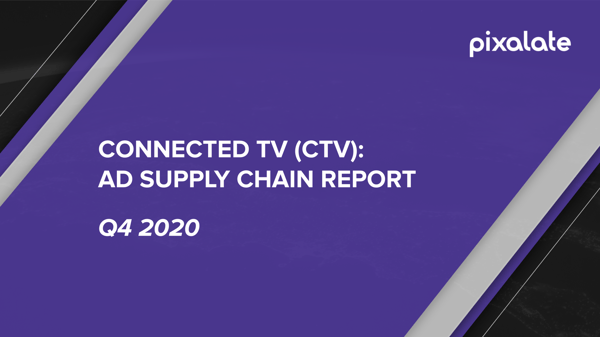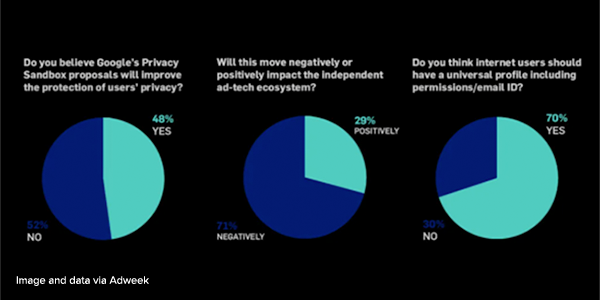

This week's review of ad fraud and quality in the digital advertising space.

Pixalate this week released its Connected TV (CTV) Ad Supply Trends Report 2020, a comprehensive look at programmatic CTV advertising throughout 2020. Among the key findings: There was a 122% increase in global programmatic CTV ad spend in 2020. Download the full report here:
Want more? Pixalate is hosting a webinar, featuring XUMO, on April 8 to review the report's key findings. Register today.

"Publishers, advertisers and ad tech companies are rallying around identity tech such as Unified ID 2.0" as the third-party cookie's life nears its end, wrote Digiday. "They are being much less forthright, though, when it comes to asking users for their consent and presenting transparent information."

Adweek recently hosted a town hall to discuss Google's decision to not support alternative identifiers once the third-party cookie is phased out — and audience members were split on what the move means for ad tech's future. The question, "Do you believe Google's Privacy Sandbox proposals will improve the protection of users' privacy?" was met with a nearly even 50/50 split response.

Search Engine Journal reports on Microsoft Ads' Ad Quality Year in Review report for 2020, noting that the report revealed a rise in fraud. "[T]he pandemic created a unique situation in which there was a massive spike in new demand for new and hard-to-find products," wrote Search Engine Journal. There was also increased online activity for businesses and consumer interaction. The combination of all of these factors "may have created a perfect storm for advertisers looking to capitalize on the situation."

"Google will not make FLoC-based cohorts available for testing in countries where GDPR and the ePrivacy Directive are in effect," reported AdExchanger. "Specifically, Google will not proceed with FLoC testing in Europe due to concerns over which entity will serve as the data controller and which will serve as the data processor in the creation of cohorts."
*By entering your email address and clicking Subscribe, you are agreeing to our Terms of Use and Privacy Policy.
These Stories on Weekly Recaps
*By entering your email address and clicking Subscribe, you are agreeing to our Terms of Use and Privacy Policy.

Disclaimer: The content of this page reflects Pixalate’s opinions with respect to the factors that Pixalate believes can be useful to the digital media industry. Any proprietary data shared is grounded in Pixalate’s proprietary technology and analytics, which Pixalate is continuously evaluating and updating. Any references to outside sources should not be construed as endorsements. Pixalate’s opinions are just that - opinion, not facts or guarantees.
Per the MRC, “'Fraud' is not intended to represent fraud as defined in various laws, statutes and ordinances or as conventionally used in U.S. Court or other legal proceedings, but rather a custom definition strictly for advertising measurement purposes. Also per the MRC, “‘Invalid Traffic’ is defined generally as traffic that does not meet certain ad serving quality or completeness criteria, or otherwise does not represent legitimate ad traffic that should be included in measurement counts. Among the reasons why ad traffic may be deemed invalid is it is a result of non-human traffic (spiders, bots, etc.), or activity designed to produce fraudulent traffic.”



